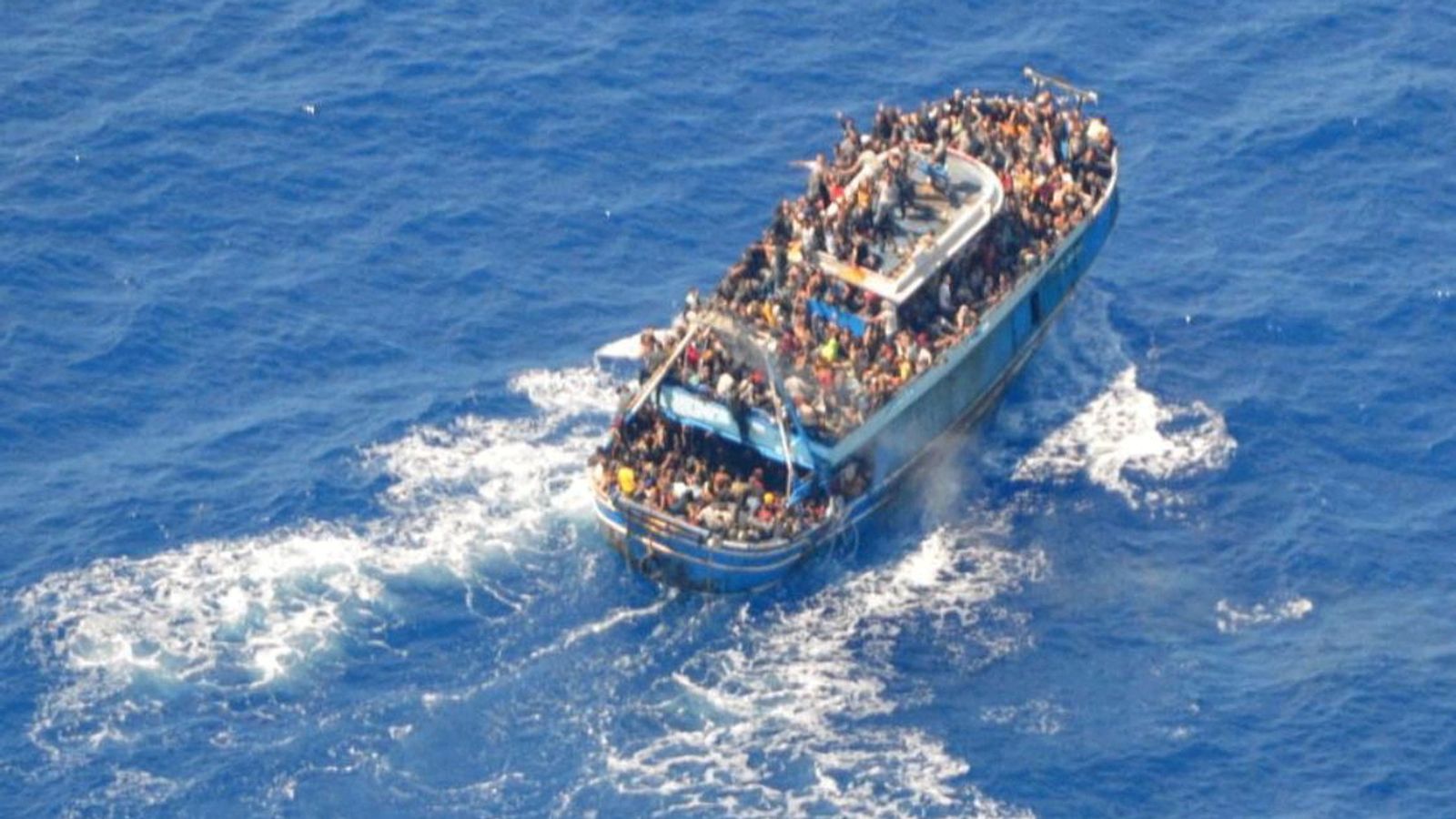Up to 500 people are missing after an overcrowded fishing boat carrying migrants capsized in the Mediterranean Sea, the United Nations has said.
Seventy-eight people are known to have died after the vessel got into difficulty and sank 45 miles off the coast of Greece in the early hours of Wednesday.
Speaking at a briefing in Geneva on Friday, a spokesperson for the Office of the UN High Commissioner for Human Rights said: “The high commissioner expressed his condolences to those who have lost loved ones – 78 people are known to have died and up to 500 are missing, among them large numbers of women and children.”
Greek authorities had already confirmed they recovered 78 bodies and rescued 104 men.
It is not known exactly how many people were on the boat, but the charity Alarm Phone, which received several distress calls, said it was around 750.
There have been no women or children rescued so far, with many fearing they were trapped on the lower deck and dragged down into the water when the boat sank.
Some of the stories now emerging from the disaster create a picture of unthinkably horrific conditions onboard.
Greece migrant boat disaster survivor has emotional reunion with brother
Migrant boat disaster in Greece: What we know so far
British man fears relatives are among missing after migrant boat sinks off Greek coast
A Greek social worker who looked after some of the survivors, told Sky News that she had heard that water ran out on the boat days before it sank, forcing passengers to drink their own urine and suck water from the melting refrigerators.
Many of them are suffering severe mental trauma.
She recalled one survivor who told her that “for two hours he was swimming surrounded by the bodies of children” and a young man in his 20s, who “wanted to commit suicide, wanted to jump into the sea and kill himself because he couldn’t take it anymore”.
Not expecting any more survivors
The survivors have been moved to an immigration centre in central Greece. The warehouse where they were staying is now being cleaned and the aid agencies have left.
It’s clear they’re not expecting any more survivors.
The media attention has shifted to the Hellenic Coast Guard office in the port of Kalamata as questions are now arising over whether they could have done more to avert the disaster.
Read more:
Migrant boat tragedy – what we know so far
Teenage boat disaster survivor’s reunion with brother
British man fears his relatives are among the missing
One Greek newspaper quoted an anonymous source claiming that a rope had been attached to the boat around three hours before it capsized.
There are also questions about why nothing was done to rescue at least some of the passengers when it was obvious the boat was dangerously overcrowded, with migrants onboard and therefore almost certainly people smugglers too.
The coastguard has previously said it acted in accordance with international law because the boat was in international waters.








